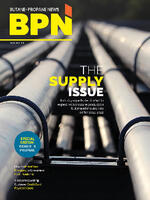
On May 7, the Texas Supreme Court affirmed a defense verdict and a 2018 Texas Court of Appeals ruling (see BPN’s December 2018 issue) in favor of propane supplier Denman Propane in a suit arising from a fire that severely injured several teenage volunteers at a church festival in Clint, Texas.
The jury also voted in favor of the Catholic Diocese of El Paso, but the Court of Appeals had overturned that verdict, ordering a new trial. The Supreme Court overturned the Court of Appeals ruling as to the diocese, holding that the original jury verdict in its favor should stand. The case involved is Catholic Diocese of El Paso v. Porter.
4-H Booth
Clint, Texas, is a small town just a few miles from the Mexican-American border near El Paso, Texas. Each year, the San Lorenzo Church holds a three-day festival called the Fiesta de San Lorenzo on church grounds in Clint to raise money for the parish. There are rides, games and, of particular note to this case, booths that sell food and drink. The El Paso County 4-H Leaders Association had rented a booth at the Fiesta for several years previously, and it did so in 2009.
Most of the booths that sold food at the Fiesta used propane to fuel various cooking devices, and the 4-H booth was no exception. There was a propane-fueled funnel cake fryer in the center of the booth, as well as a propane-fueled deep fryer located at the back of the booth. A steam table was also fueled by propane.
Notably, a large ice chest was located near the front counter. One of the 4-H volunteers provided two propane tanks for the booth. One of these tanks was a small ASME tank that was located near the front of the booth beneath the steam table, which it fueled. The other was a small DOT cylinder.
Teenagers Injured
On Sunday, the last day of the Fiesta, the 4-H booth was staffed by four young teenagers and two adults. A small explosion or flash fire occurred, and the four teenagers in the booth sustained burn injuries. Three of them were injured badly enough to be life-flighted to a burn center in Lubbock, Texas.
From the outset, there were two possible causes identified for the event. First, it was alleged that the incident was caused by the ignition of propane leaking from the ASME tank. However, it was also alleged that the fire was caused when one of the volunteers in the booth dropped ice or water into the boiling grease of the funnel cake fryer. The families of the severely injured teenagers sued Heritage Propane, which had allegedly (through its Denman Propane affiliate) filled the ASME tank. The families also sued the Catholic Diocese of El Paso, which through the San Lorenzo parish ran the Fiesta de San Lorenzo. They contended that Heritage improperly filled the tank and that the diocese failed to properly inspect and enforce safety protocols for the festival 4-H booth.
Conflicting Testimony
At trial, there was conflicting testimony on multiple points. The volunteer who supplied the ASME tank said he had it filled at Heritage’s Denman Propane facility. Heritage denied this, offering testimony that it had no record of such a sale.
Some witnesses said they smelled propane in and around the 4-H booth before the incident, while others said they smelled no propane at all and still others said they smelled propane, but in the vicinity of other booths. The sound of the event was variously described as “a whoosh,” “a boom” or “a pop,” among other things. Some witnesses said a container with ice and/or water was passed near or over the funnel cake fryer, while others denied this happening.
The plaintiffs presented expert testimony that the overfill protection device on the ASME tank was defective, and that it was the source of leaking propane that ignited. They also presented expert testimony that the sounds described by the witnesses were more consistent with the ignition of propane, whereas a grease fire caused by ice or water would sound more like a boiling or splattering.
Their experts also argued that a grease fire would have lasted longer than what was described by the witnesses. Finally, they pointed to low-level burn patterns inside the booth and on the victims themselves, indicating this was a propane event, rather than a grease fire.
Unmounted Tank
The plaintiffs also presented expert testimony that Heritage should not have filled the small ASME tank because this tank was “designed for permanent installation on a piece of equipment, such as being bolted to the side of a motor home.”
According to the expert, because Texas Railroad Commission regulations barred Heritage from filling a tank if it had reason to believe it was “not installed in accordance with statutes or liquified petroleum gas safety rules,” Heritage shouldn’t have filled this “unmounted” tank when it was presented by the 4-H volunteer. This expert added that Heritage should have checked the cylinder for leaks when filling it, and if it had done so, Heritage would have found the leaking overfilling prevention device (OPD).
Heritage, of course, countered with its own expert testimony. While it denied filling the tank, it presented an expert who testified that the filler of the tank did nothing wrong, and that the small ASME tank could indeed be filled without being mounted to a vehicle.
Another defense expert said the sound described by the witnesses was not consistent with the ignition of propane, and that the OPD leak was intermittent, occurring only at low pressures. Finally, Heritage presented video of various tests that an expert conducted and that Heritage said showed the incident was the result of a grease fire rather than a propane ignition.
Verdict & Appeal
After a one-month trial, the jury returned a defense verdict in favor of Heritage and the diocese. The plaintiffs appealed, and the Texas Court of Appeals affirmed the verdict in favor of Heritage.
However, it reversed the verdict in favor of the diocese on the grounds that a jury finding that this was a grease fire was against the weight of the evidence. The diocese then appealed to the Texas Supreme Court, and the plaintiffs appealed the Heritage ruling.
As to Heritage, the appeal focused on the issue of whether or not Heritage had filled the tank. The plaintiffs pointed to the testimony of the 4-H volunteer that the tank was filled at Heritage, arguing that this testimony was conclusive as a matter of law. But the Supreme Court disagreed:
“The Families must carry a heavy burden to prevail in their legal sufficiency challenge. When a party attacks the legal sufficiency of an adverse finding on an issue on which it bears the burden of proof, the judgment must be sustained unless the record conclusively establishes all vital facts in support of the issue. To conclusively establish fact, the evidence must leave no room for ordinary minds to differ as to the conclusion to be drawn from it. The Families have not met this burden. Diller [the 4-H volunteer] testified that he was “absolutely certain” that he filled the tank at Denman Propane, a propane filling station owned by Heritage. However, neither Diller nor Heritage had receipts documenting this alleged transaction, and Juan Jurado, the only bottle filler working at Denman Propane in 2008, testified that he did not recognize Diller and had no memory of filling Diller’s distinctive-looking gold tank. Typically, evidence becomes conclusive (and thus cannot be disregarded) when it concerns physical facts that cannot be denied. Moreover, jurors are the sole judges of the credibility of the witnesses and the weight to give their testimony, and when they choose to believe one witness and disbelieve another, appellate courts cannot impose their own opinions to the contrary. In the absence of physical evidence such as receipts, the jury was free to believe either Diller’s testimony or Jurado’s. Accordingly, the record does not conclusively establish that Heritage filled the propane tank at issue. We overrule the Families’ legal sufficiency challenge.”
Also, the court reversed the Court of Appeals ruling against the diocese. It held that, even if the jury concluded that this was a propane explosion as opposed to a grease fire, the plaintiffs had not conclusively established that the diocese had actual knowledge of some condition of the propane tank that created an unreasonable risk of harm to the volunteers. It therefore ruled in favor of the diocese.


